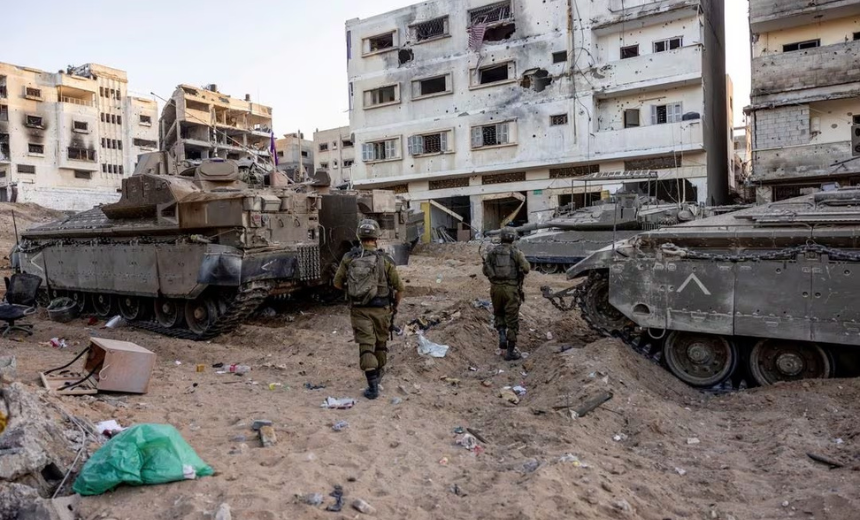Street battles raged in Gaza City with Hamas fighters using tunnels to ambush Israeli forces, as the United States said Palestinians must govern Gaza post-war, countering Israeli comments that it would control security indefinitely.
The Israeli military said its troops had advanced into the heart of Gaza City, Hamas’ main bastion and the biggest city in the seaside enclave, while the Islamist group said its fighters had inflicted heavy losses.
Hamas’ armed wing on Wednesday released a video that appeared to show intense street battles alongside bombed out buildings in Gaza City.
MUST READ: Foreigners prepare to leave as Israel steps up Gaza onslaught
Israeli tanks have met heavy resistance from Hamas fighters using underground tunnels to stage ambushes, according to sources with Iran-backed Hamas and the separate Islamic Jihad militant group.
Israel struck Gaza in response to a cross-border Hamas raid on southern Israel on Oct. 7 in which gunmen killed 1,400 people, mostly civilians, and took about 240 hostages, according to Israeli tallies.
As the Israel-Hamas war enters its second month, Washington has begun discussing with Israeli and Arab leaders a future for the Gaza Strip without Hamas rule.
While a plan has yet to emerge, U.S. Secretary of State Antony Blinken outlined Washington’s expectations for the besieged coastal territory.
“No reoccupation of Gaza after the conflict ends. No attempt to blockade or besiege Gaza. No reduction in the territory of Gaza,” Blinken said on Wednesday at a press conference in Tokyo.
Blinken said there may be a need for “some transition period” at the end of the conflict, but post-crisis governance “must include Palestinian-led governance and Gaza unified with the West Bank under the Palestinian Authority.”
On Monday, Israel’s Prime Minister Benjamin Netanyahu told ABC News that Israel will “for an indefinite period” have security responsibility for the enclave after the war.
Israeli officials have since tried to clarify they do not intend to occupy Gaza after the war, but they have yet to articulate how they might ensure security without maintaining a military presence.
Editor Oloyede Oworu








